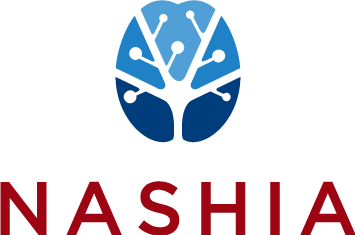In collaboration with Mid-America Addiction Technology Transfer Center and Mountain Plains Addiction Technology Transfer Center, NASHIA presents Traumatic Brain Injury & SUD: Intimate Partner Violence.
Domestic violence is a complex public health issue with a widespread impact on individuals, communities, and society. Many survivors of abuse also struggle with substances. This presentation will introduce the role of domestic violence and other abusive tactics—specifically behavioral health and substance use coercion -- as additional drivers of substance misuse and addiction. To add another layer of complexity, a critically important consequence of domestic violence has been hidden in plain sight for decades—brain injury. This webinar will share what we have learned from groundbreaking research in Ohio on the intersection of brain injury and domestic violence, as well as a service provision framework called CARE (Connect, Acknowledge, Respond, Evaluate). You will leave with tools to assist you in raising awareness and addressing partner-inflicted brain injury in your services and help you better support the unique needs of people impacted by domestic violence, brain injury, and addiction.
1. Describe at least three ways that domestic violence can contribute to the substance misuse challenges and addiction.
2. Learn how to use the CARE framework as a guide for working with people experiencing brain injury, domestic violence, and addiction.
3. Identify resources (including CARE tools) to assist you in educating, identifying, and accommodating for brain injury in your programming.
For NAADAC, CHES, Iowa Board of Certification, and Missouri Credentialing Board CEs, email Bree at sherryb@umkc.edu if you have any questions.
View the Recording and Supporting Materials
SW CEs until 5.31.22/CRC CEs until 3.31.22/General Attendance Here
Presenter: Rachel Ramirez, MA, MSW, LISW-S, RA
Rachel Ramirez is the Founder and Director of The Center on Partner-Inflicted Brain Injury, a project of the Ohio Domestic Violence Network (ODVN). Rachel is currently directing the Center’s first federal grant from the OVAM to increase collaboration and develop training and services for the brain injury and domestic violence fields. Over the past 13 years at ODVN, Rachel has led multiple statewide initiatives on survivor-informed approaches as well as other topics. She has trained hundreds of audiences and co-authored a book, as well as peer-reviewed journal articles. Rachel is a bilingual licensed independent social worker and a registered public interest petitioner with senior standing in Ohio.

